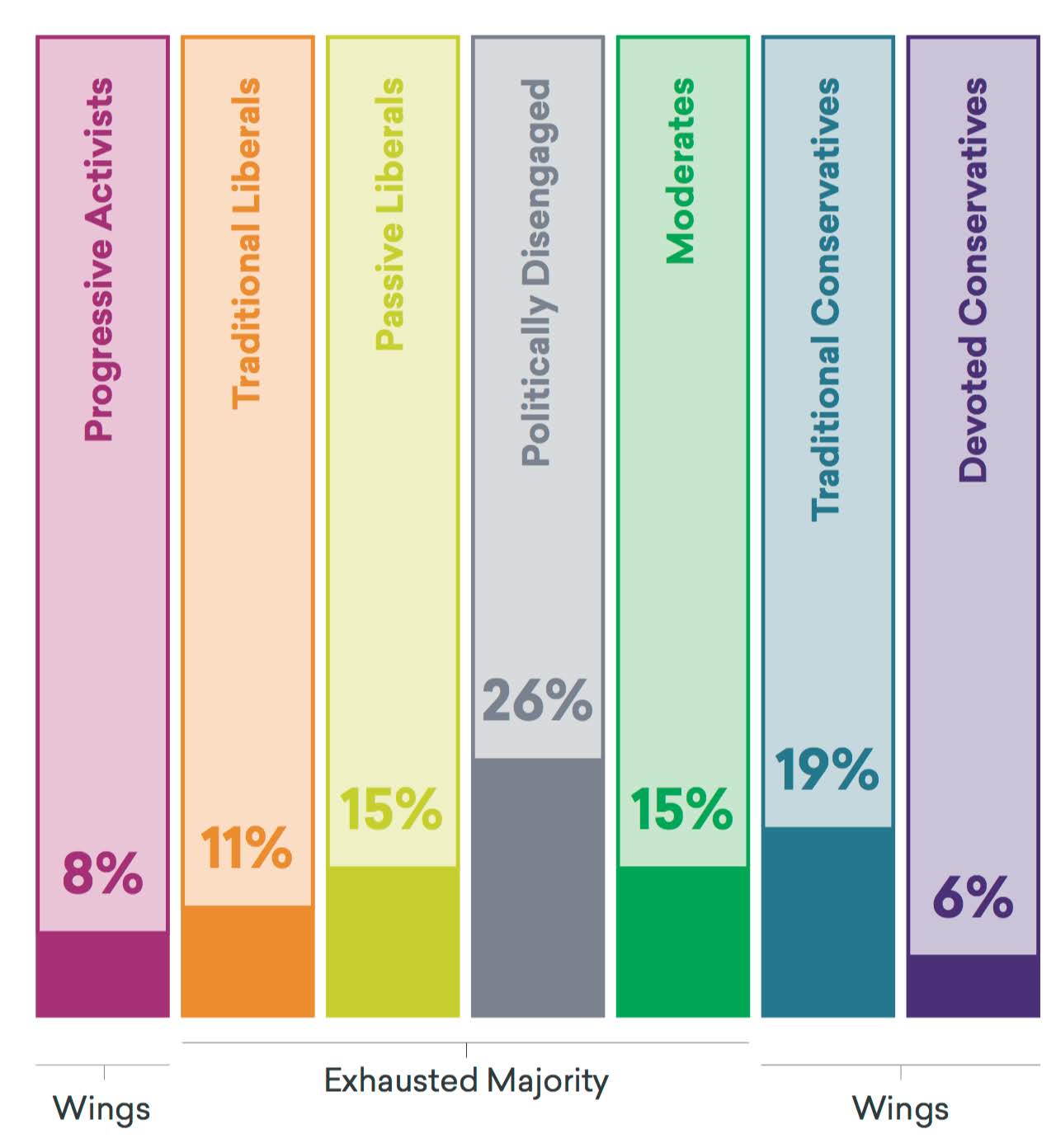
There’s no question that modern political discourse has become polarized and angry. People are more likely to hate members of the opposing party than they are to feel warmly towards their fellow members. More than ever parents fear their child will grow up to marry someone from the opposing political party. Thanksgiving dinners are almost an hour shorter now than before 2016 if opposing parties are celebrating together. What happens if a person doesn’t want to hate people they disagree with? They feel left out of the national discussion. They feel like oddities.
However, a recent study shows that people who want open communication are not the oddities, but are in fact, the majority.
In their study, HIDDEN TRIBES: A STUDY OF AMERICA’S POLARIZED LADSCAPE, the More in Common initiative has found that Americans as a whole have more in common than not, and do not want the discourse as it is..
Instead of using traditional demographics such as race, income, or political affiliation, they used a wide variety of questions on core beliefs on topics such as parenting and authoritarianism, fear and perception of threat, moral foundations, and personal responsibility. With the data collected, More in Common divided people into seven separate groups: Progressive Activists, Traditional Liberals, Passive Liberals, Politically Disengaged, Moderates, Traditional Conservatives, and Devoted Conservatives. Progressive Activists and the Traditional and Devoted Conservatives make up the “wings” while the other four categories comprise what they call “The Exhausted Majority”

(Note, page 110 of the study explains that Traditional Conservatives are categorized as a “wing” while Traditional Liberals aren’t; it is because, as a group, they are confident and optimistic about the current direction of the government, and thus lack the “exhausted” quality).
Members of all groups rank healthcare and political divisiveness as the two of the largest problems facing our country (page 58). Another two categories where most people agree across the political spectrum is that 81 percent see racism as a pervasive problem within the U.S., but 80 percent also feel “Political Correctness” has gone too far, with the Progressive Activist group being the only to fall below the fifty percent mark (page 98). Even hot-button issues like immigration finds people agreeing, with 78 percent supporting a path to citizenship for undocumented immigrants brought to the U.S. as children (page 61), with Devoted Conservatives being the lowest at still an unexpectedly high 63 percent. On many issues, we agree more than expected.
Where the Exhausted Majority differs from the wings is that they are about 20 percent more likely to feel that “the people I agree with need to be willing to listen to others and compromise” (page 112). In addition, their loyalty to the party line is more likely to deviate (pro-choice conservatives or gun-owning liberals, for example).
Despite these similarities, the Exhausted Majority overwhelmingly feels “pessimistic” about our ability to come together and work through our differences (72%) citing “the tribal behavior of political combatants” (page 113).
Where does this disparity between what we agree on versus what we perceive come from? Social media is a huge factor. Algorithms finely curate our feeds so that we are seeing less and less of what we disagree with. Within these bubbles, the “other” is increasingly demonized at the same time pressure is put upon the “friends” to conform to party lines (page 133). Those who don’t agree completely are afraid to speak up, lest they be demonized as well. With the voices from the center silenced, the only voices being heard are the extremes. Eventually, we mistake the only voices for the only opinions on the matter.
How do we fix this? How do we get it so the majority isn’t ignored anymore? How can we take back our own political discourse from those who want to divide us even farther? I wish I had a good answer. One thing is certain though–we need to start somewhere, whether within our own groups or by reaching out to others. And, as other Exhausted Majority members hear our voices, they’ll feel confident in their own and start speaking as well. The only way to get our voices heard is to speak up.
